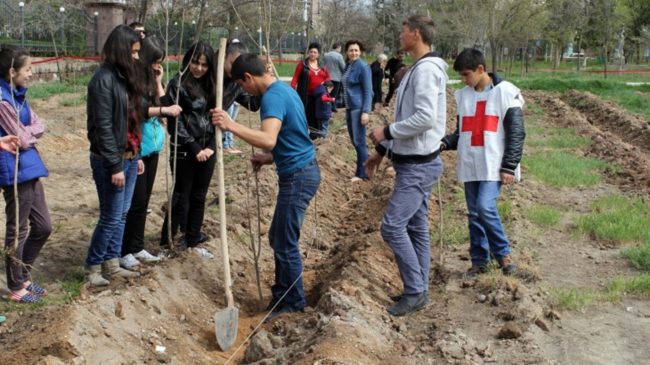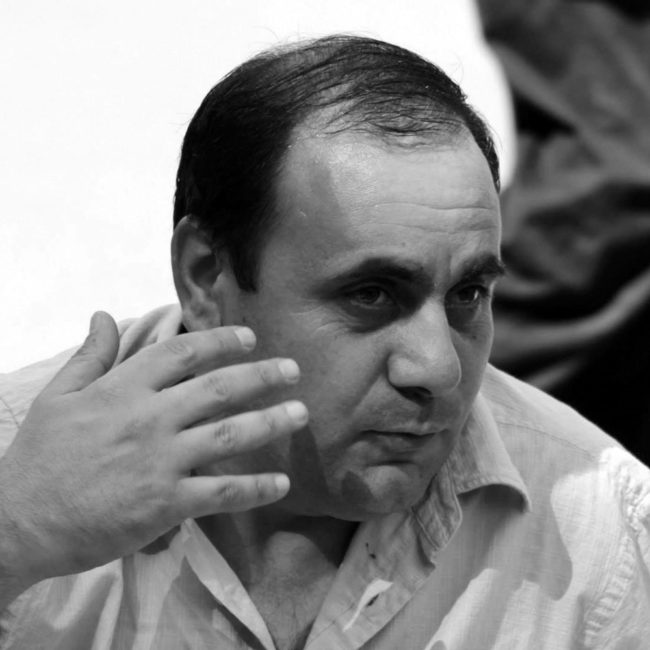No political will in Armenia to find the missing persons of the Karabakh conflict [Analysis]



Thousands of people have gone missing due to the conflict in Nagorno-Karabakh. More than two decades have passed since a ceasefire agreement was signed, but thousands of families still do not know what happened to their loved ones.
According to a report by the Parliamentary Assembly of the Council of Europe (PACE), 4,604 Azerbaijanis and 947 Armenians remain missing in the conflict over Nagorno-Karabakh. Most of them disappeared during the 1988–1994 Nagorno-Karabakh War.
Although there are no reports of recent disappearances, both sides regularly report violations of international humanitarian law, including, humiliations, torture, and inhumane treatment of both military personnel and civilians. The violence has escalated since the April 2016 clashes, after which the Armenian delegation to the OSCE accused Azerbaijan of a number of cases of torture and killing of Armenian civilian captives and prisoners of war.
This situation is particularly hard on the families of missing persons. According to the Red Cross, such families often lack social support and live in isolation, which aggravates the emotional stress from the loss of their loved ones. Families also face legal and administrative problems because they lack knowledge about their rights, or because there are no legal instruments to help them protect those rights.
International law
PACE Resolution 1553 stresses that this is an issue that continues to fuel tension in the region and hampers efforts to find a peaceful solution, not only to the conflict over Nagorno-Karabakh, but also Georgia’s conflicts in Abkhazia and South Ossetia.
The resolution emphasised that the issue of missing persons is a purely humanitarian one, and should not be treated as a political tool, and should not, therefore, be dependent on a political settlement of the region’s conflicts.
International Law states that all actors of an armed conflict have a duty to obey humanitarian law. State authorities and armed groups bear primary responsibility for ascertaining the fate of the missing and handling the dead with respect. They are required to provide information to the families of missing persons and provide them with support. State actors also have a duty to investigate illegal detention, summary executions, and enforced disappearances. They also need to ensure that criminal proceedings are initiated and that reparations are paid.
Both Armenia and Azerbaijan have ratified the Geneva Conventions which seeks to protect those who are not taking part in an armed conflict, and are therefore legally obligated to address this issue. However, Azerbaijan has not ratified the two additional protocols of 1977, which means that they have not accepted the full panoply of humanitarian standards offered by these instruments.
No political will
During the last decade the issue of missing persons has become a forgotten topic for both civil society and for the Armenian and Azerbaijani governments. Major civil society initiatives to solve the issue all took place before 2007.
The PACE resolution is the only international legal framework working on missing persons in the conflicts in South Caucasus, and it offers only very limited tools for doing so. In Armenia the Red Cross is the only organisation that continually works on finding and documenting missing persons, and supporting their families.
A lack of political will appears to be the principal reason for the slow progress in establishing the fate of missing persons. Cooperation between the Commissions for Prisoners of War, Hostages, and Missing Persons in Armenia and Azerbaijan is necessary to agree on a consolidated list of the missing persons, and to trace, map, identify, and manage human remains. In their recent statements, the OSCE Minsk Group Co-Chairs — who are mediating efforts to find a peaceful solution to the conflict — have called on Baku and Yerevan to exchange information on missing persons through the Red Cross, but this has so far fallen on deaf ears.
In March 2010, Armenia’s Foreign Ministry initiated works on a draft law ‘On Missing People’. A number of state institutions (the National Assembly; President’s Staff; Human Rights Defender; ministries of Defence, Health, and Labour; and the Police and National Security Service) were involved in developing the draft, along with the International Committee of the Red Cross and Helsinki Citizens’ Assembly in Vanadzor. The draft was completed in April 2011, and defines issues that are currently not clarified by the law, including the state’s responsibility to search for and return missing persons and the protocol for delivering information to families. The draft would also establish a legal basis to provide social and legal assistance to families, and would clarify the rights and the duties of government agencies and NGOs in dealing with the issue.
However, the bill On Missing People was never taken further, and did not go before Armenia’s National Assembly to be adopted into law. While Armenia’s Ministry of Justice insists that adoption of the law is not an urgent issue, for the thousands of families whose loved ones remain missing, this is undoubtedly not the case.
All place names and terminology used in this article are the words of the author alone, and may not necessarily reflect the views of OC Media’s editorial board.








